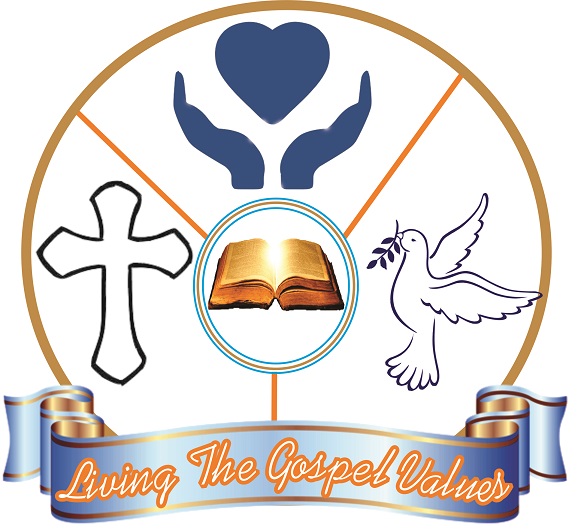Reflection on Today’s Readings, the Solemnity of Annunciation of the Lord, Friday 25th March, 2022
Texts: Isaiah 7:10-14;8:10; Ps. 40:7-11; Hebrews 10: 4-10; Luke 1: 26-38
Today is the Solemnity of the Annunciation of the Lord; it is the celebration of the mystery, “The word became flesh and dwelt among us” (John 1:14). We celebrate, today, what many prophet talked about and expected; they died waiting for the fulfilment of the mystery. In today’s first reading, Isaiah speaks of the mystery thus: “Therefore the Lord himself will give you a sign. Behold, a virgin shall conceive and bear a son, and shall call his name Immanuel.” We may ask: What sign is it? It is a sign that God is worthy of our full trust. King Ahaz refused to place his trust in God; he prefer to trust human reasoning rather than God. What we need to do to experience the almighty power of God is to just place our whole trust in Him. Hence, this celebration is a reminder and reaffirmation that God should be trusted wholeheartedly. If He could make a virgin bear a child, then nothing is impossible for Him to do for us; all we have to do is to place our full trust in Him. The celebration of the Annunciation of the Lord is a celebration of obedience to the will of God.
King Ahaz is an example of such people who failed to put their trust in God’s salvation. We are not to be like them. King Ahaz had a battle to fight and God sent Isaiah to him that he should trust in Him to save them. To persuade him God asked him to ask for any sign which would prove to him that He was able to save them. King Ahaz rather said, “I will not ask, and I will not put the Lord to the test.” He is an example of those who wasted the grace of God; He wasted the efforts to save him.
We are reminded, today, to toy the path of the Blessed Virgin Mary who trusted God wholeheartedly and said ‘yes’ to His will. Being a true Jewess she would have known what she was up against, having a child without a man. In spite of the danger looming ahead, she said ‘yes’ to God. She trusted God to save her from all the trouble. Blessed Virgin Mary teaches us to always say ‘yes’ not minding the cost; we should trust in Him to save us. It is said, “And Mary said, ‘Behold, I am the handmaid of the Lord, let it be to me according to your word.’” Jesus Christ also gives us an example to always do the will of God. Today’s second reading attests to it thus: “Consequently, when Christ came into the world, he said, ‘Sacrifices and offerings you have not desired, but a body you have prepared for me; in burnt offerings and sin offerings you have no pleasure. Then I said, ‘Behold, I have come to do your will, O God’ as it is written of me in the roll of the book.’” We should always live to bring to past in our lives the word of God, what is written about us as the children of God.
We also learn from the second reading that the flesh the Son of God took is the means of our sanctification and salvation; the offering of the flesh in perfect obedience to God the Father by the Son wins us sanctification and consequently salvation. It is expressed thus: “He abolishes the first in order to establish the second. And by that will we have been sanctified through the offering of the body of Jesus Christ once for all.” We no longer need to offer animals, for God the Son has offered body for us once and for all. We celebrate, today, the creation of that body by which we are sanctified and saved. The creation of the body was made possible by the ‘yes’ of the Blessed Virgin Mary. In her submission to the will of God, she consented to God’s plan of salvation and the role assigned to her. Blessed Virgin Mary has taught us to consent to God’s plan of salvation and to accept the role assigned to us. Jesus Christ has taught us to offer ourselves to God as He has done to God the Father.
O God, who willed that your Word should take on the reality of human flesh in the womb of the Virgin Mary, grant, we pray, that we, who confess our Redeemer to be God and man, may merit to become partakers even in his divine nature. Amen. (Collect)
Fr. Andrew Olowomuke








0 Comments